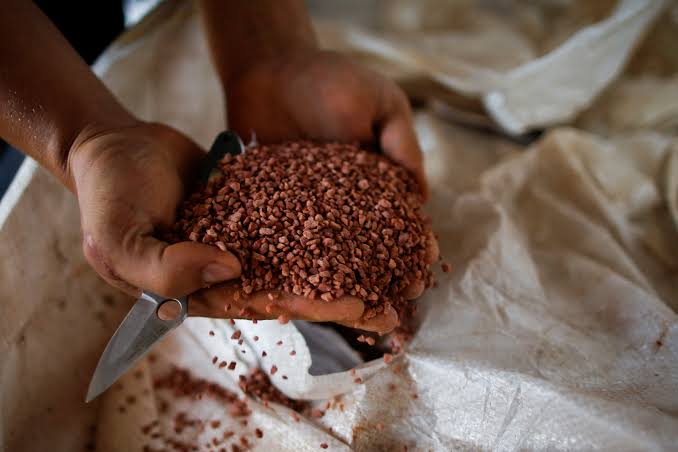Business
FERTILIZER: Nigeria to pay more for Canada’s potash, as sanction against Russia bites

Nigeria’s deal with Russia, involving potash trade, has taken a hit from the United States-led sanctions, as President Muhammadu Buhari’s administration is forced to trade with Canada.
The Russian government and Nigeria had signed a potash trade deal in 2019 to import potash from Uralchem, a Russian company. But since the global sanction against Vladimir Putin’s country for Ukraine invasion, there have been a gap between supply and demand.
Potash is a raw material for fertiliser, used to resist disease, aid growth of plant, preserve water, and support crop yield. Its usage also extends outside the farmland, with manufacturers inputting potash for the production of pharmaceuticals, detergents, ceramics, as well as served as alternatives to de-icing salt.
The largest producers are Canada, Russia, Belarus, China and Israel. As of 2019, the first three companies accounted for 79% of the potash traded globally.
How the sanction affects Nigeria
Prior to the sanctions, which includes blockage of international trade, Nigeria usually received supplies of about five cargoes from Russia, but its inability to import from Putin’s country compelled the government to trade with Canada.
Read also :Dangote plant will reduce dependence on imported fertilizer – Emefiele
According to a Reuters report on Tuesday, Nigeria imported three cargoes of potash, as the government tries to readjust to the global sanction against Russia. The head of Nigeria Sovereign Investment Authority (NSIA), Uche Orji, had revealed the new trade path.
“Russia was unable to deliver so we bought spot from traders in Canada. The Canadian High Commission in Nigeria helped start the conversation with producers.” Orji said.
Deal to weigh on Nigeria’s finances
The Canadian trade deal is expected to eat into the finances of the Nigerian government, considering the year Russia sealed the deal with Nigeria, potash traded around $275 per tonne, before depreciating to $200 in 2020 – the year of COVID-19.
However, while the price jumped to $300/tonne last year, potash market price appreciated by 266%, to trade around $1,100 a ton as of late March 2022, according to Mercopress.
The hike in price is linked to the Ukraine invasion and sanctions against Russia and Belarus (which supported Putin’s actions in Ukraine) – as demand rises, the capacity of producers to meet demand dwindled.
Considering the bottleneck around Russia and Belarus (both of which accounts for 79% in global trade with Canada) this limit producers of potash, at full capacity, to Canada, China and Israel, with the three companies filling the gap to meet or surpass the 69.2 million tonnes recorded in 2020.
Join the conversation
Support Ripples Nigeria, hold up solutions journalism
Balanced, fearless journalism driven by data comes at huge financial costs.
As a media platform, we hold leadership accountable and will not trade the right to press freedom and free speech for a piece of cake.
If you like what we do, and are ready to uphold solutions journalism, kindly donate to the Ripples Nigeria cause.
Your support would help to ensure that citizens and institutions continue to have free access to credible and reliable information for societal development.























